The westernmost part of Belgium which includes part of the
coast and the small cities of Veurne, Ypres, Diksmuide, and Poperinge is known
as the Westhoek. Some of this area is
known as Flanders Fields since part of the front between Allied Forces and the
Central Powers in WWI ran through the region, a northward extension to the
North Sea coast of the line that ran mostly across northern France. This sliver
ofa region was the only part of Belgium unoccupied by Germany during WWI, and
even most of those towns near the front lines like Ypres and Dixmuide were
virtually leveled by shelling. Veurne was the exception being farther back from
the front and maintains its mostly unreconstructed medieval center today. I
wouldn’t say it’s a mini version of Bruges, but it is a quaint town that
doesn’t get overrun with tourists.
It actually wasn’t looking all that quaint while I was
there. It was apparently around the time of the town’s Kermis (carnival) and
the central square that’s surrounded by old buildings was completely filled up
with everything you’d expect to find at a county fair midway.
Oh well! Veurne’s town hall served as capital of
unoccupied Belgium for four years during WWI. Naturally it’s not the Free
Fatherland Museum covering Belgium’s experience in WWI, particularly the
unoccupied areas and the front. It was interesting for me since I don’t know
WWI history as well as I do WWII history. It also wasn’t part of the living
memory of my mother, aunts, and uncles who lived through WWII in Europe that I
heard about when I was young. My
grandmother would have been 22 at the time of the outbreak of the Great War and
lived through the occupation, but the only thing I remember either her saying
or my mother claiming she said about it was that WWI was much worse than WWII.
I didn’t know it ahead of time, but I picked a great day to
visit Veurne. The annual Boetprocessie (Procession of Penance) was taking place
that afternoon, a major religious procession through the town. Well, that seals the deal – I’m staying here
rather than continuing on to other sites in the Westhoek. And it’s raining
anyway! To pass a few hours before the procession began, I decided a big multi-course
Sunday dinner would be in order, one with beer painting for each course at ‘t
Hof van te Hemel, a Lonely Planet recommended restaurant.
Although the food
wasn’t cheap, at least the portions were big and the food was fantastic – a
huge bowl of fish and seafood soup, almost like a Bouillabaise served with a
Roux, then A big bowl of Vlaamse Stoverij and Frites. That would be Flemish beef stew with beer
similar to what my mom used to make but absolutely fantastic. And then finally
a plate of four Flemish cheeses.
I didn’t really know what to expect from Boetprocessie but
thought it might be something a little like Semana Santa (Holy Week) in
Spain. And yes, there were some
penitents with their heads covered, walking barefoot, and carrying their crosses.
They were just one part of the show, though, with a cast of many hundreds, the
actors including some sheep, horses, and donkeys. It started out with a fanfare and there were
a couple drummers and other fitting instrumental accompaniments, but mostly the
procession was in silence except for the narrators telling the story of what
was taking place. It seemed to start with some Old Testament groups like Moses
leading his people to the promised land and King David, but naturally mostly
focused on the New Testament and the life of Jesus, everything from Mary and
Joseph riding going into Bethlehem and the three kings and the shepherds on
through Jesus’s entry into Jerusalem on Palm Sunday, the events of Holy Week,
wagons depicting the stations of the cross pulled by men in hoods, the Last
Supper, Pontius Pilot, King Herod, Centurions, the Crucifixion and
Resurrection.
This is great; it’s like the whole Bible condensed into one
parade!
In Veurne they apparently haven’t gotten the memo as to
what’s politically correct – angels all have manes of blond hair, blackface
depictions of the African King and his minions are still in, and certain
characters like wise men and Pharisees clearly fit caricature anti-Semitic
stereotypes. I quite liked the Roman soldiers on massive Belgian draft horses.
I found a place to sit outdoors at a café to watch the procession near its
beginning and then caught it again for a better picture vantage point at
another spot along its route through town.
Well, the rain seemed to end with the parade. It was early
evening by then so I decided to head for my hostel in Oostduinkerke, a coastal
town that used to be famous for its Peerdevissers, fisherman who would fish for
the regions famous small gray shrimp while on horseback dragging nets through
the shallows. Nowadays they only fish that way as part of a show for the
tourists during the summer months, but the hostel is still name for De Peerdevissers.
And it looks like it’s cool and airy and I might have a room to myself for at
least the first night of my three-night stay. Yeay!

 Veurne, Flanders, Belgium
Veurne, Flanders, Belgium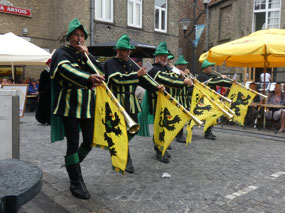
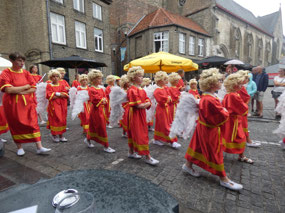
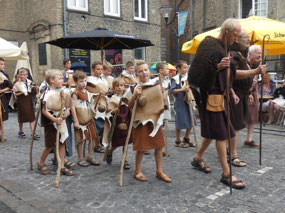
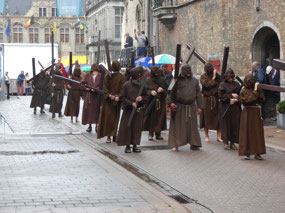

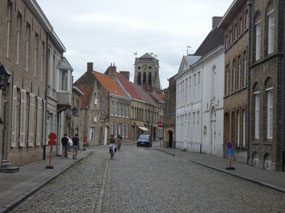
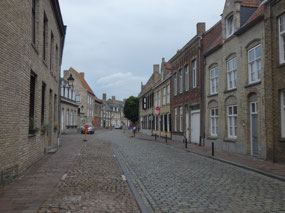
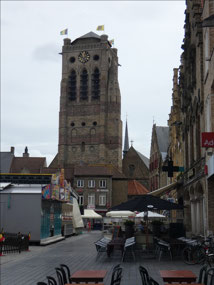
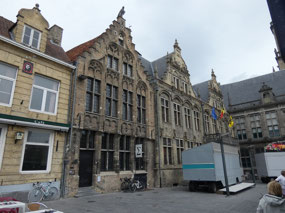
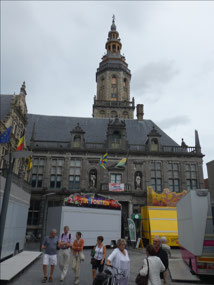
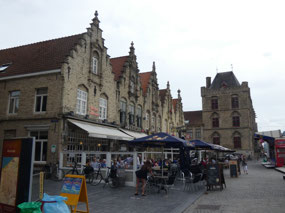
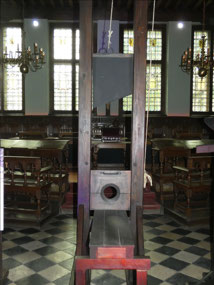
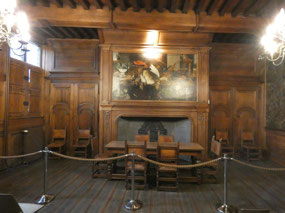
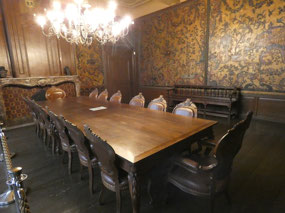
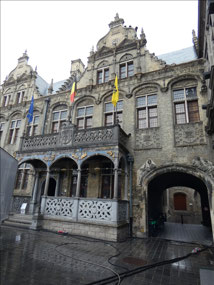
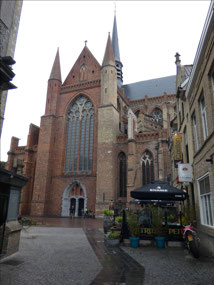
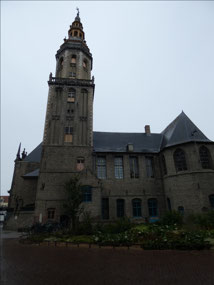
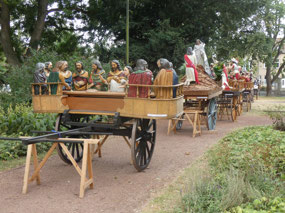
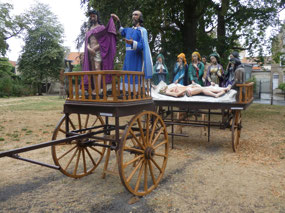
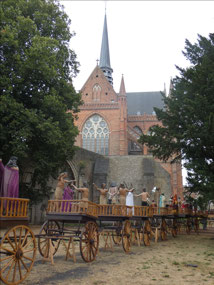
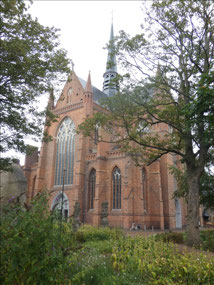
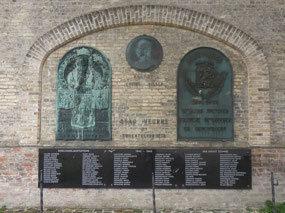
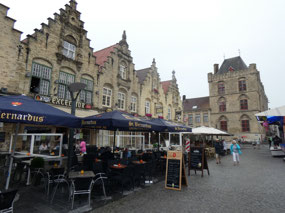
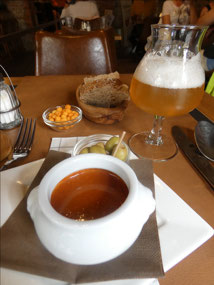
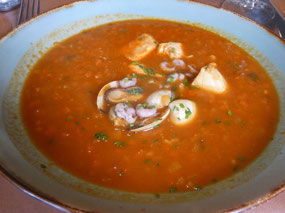
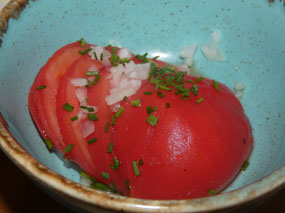
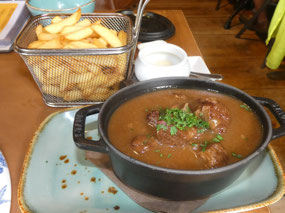
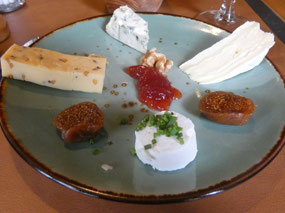
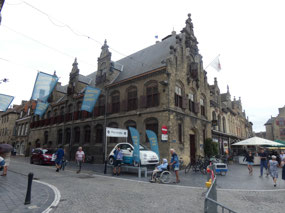
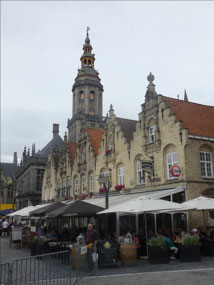
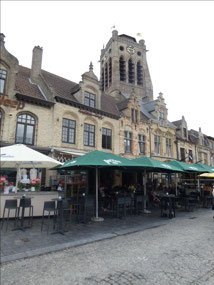
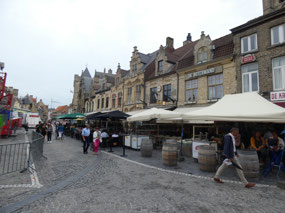
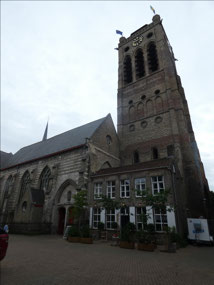
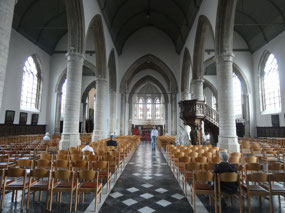
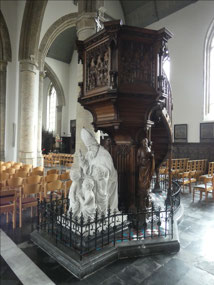
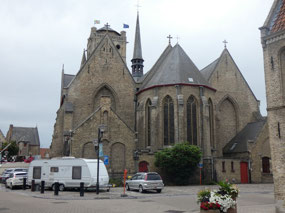
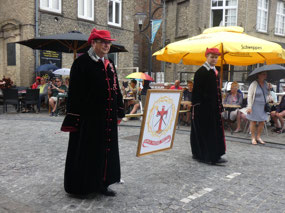
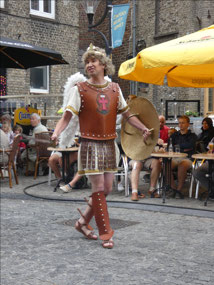
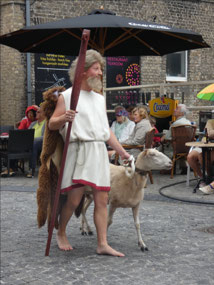
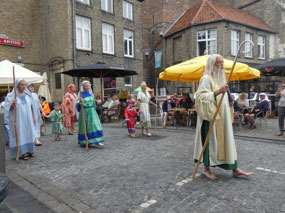
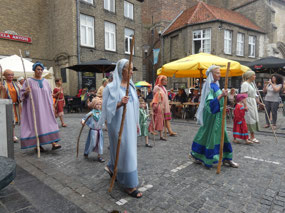
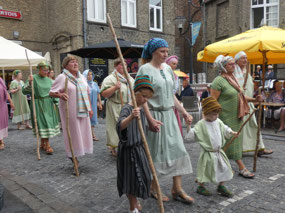
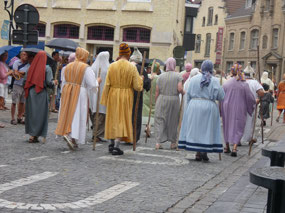
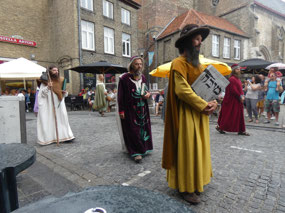
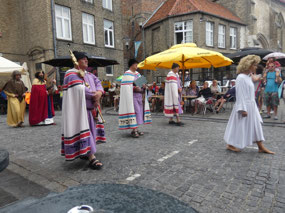
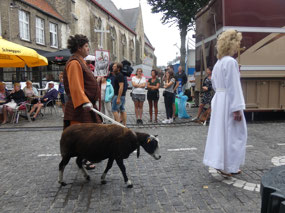
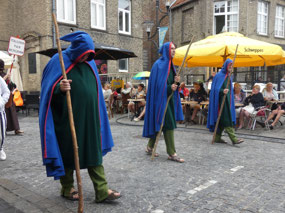
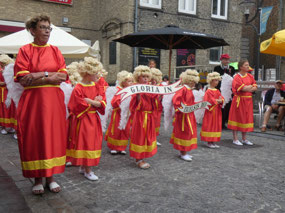
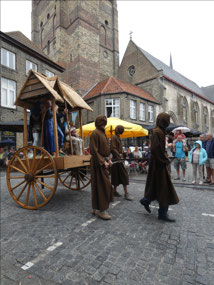
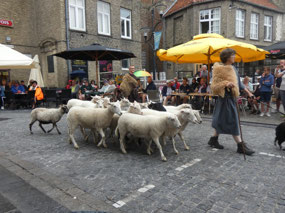
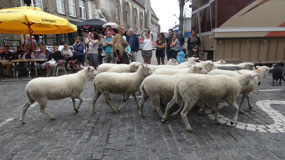
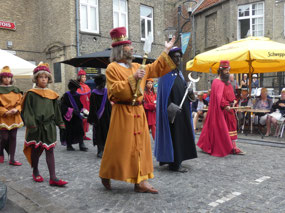
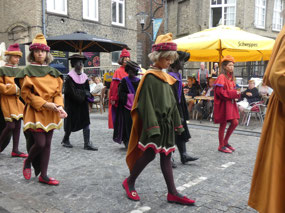
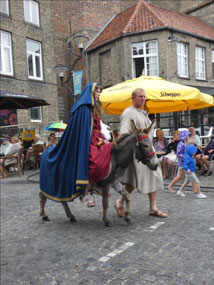
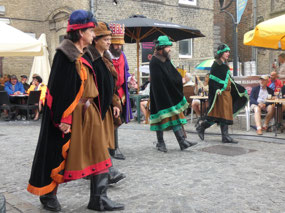
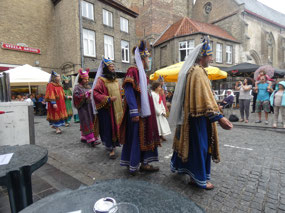
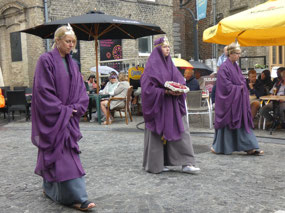
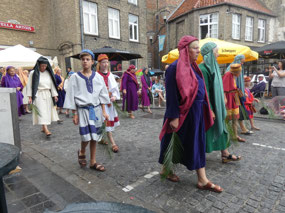
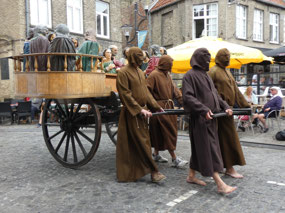
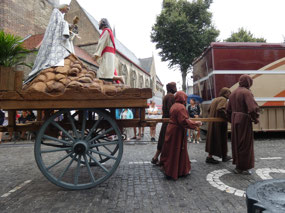
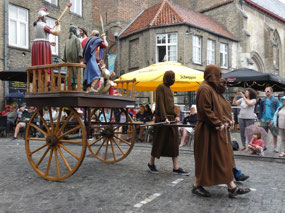
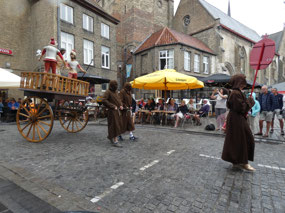
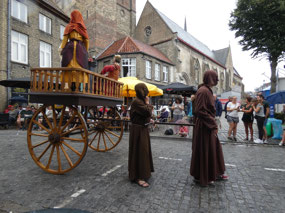
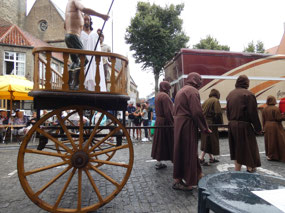
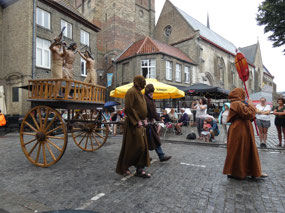
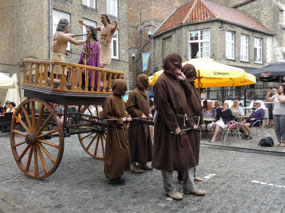
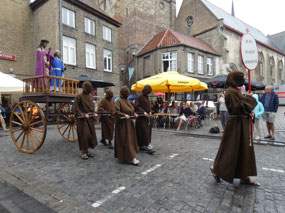
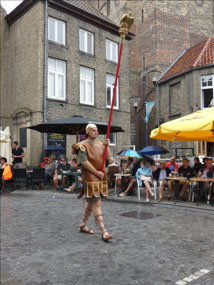
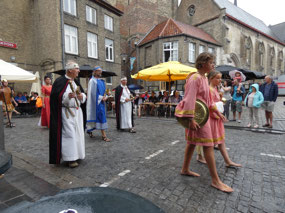
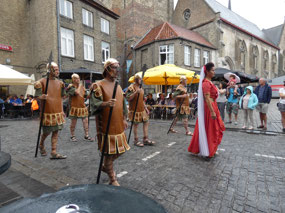
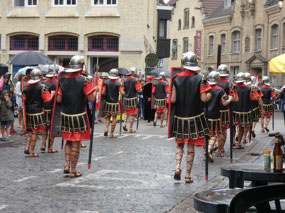
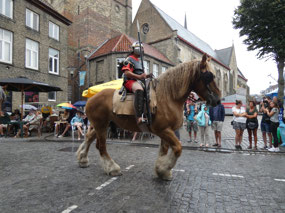
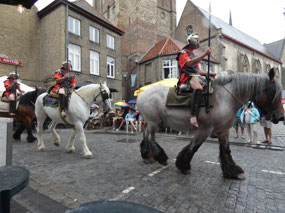
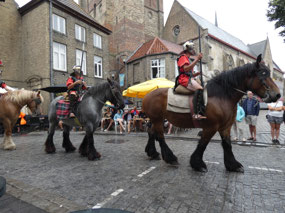
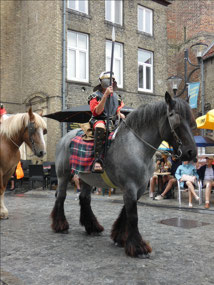
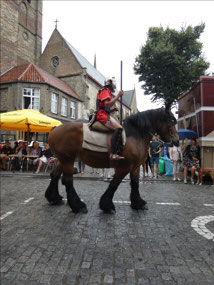
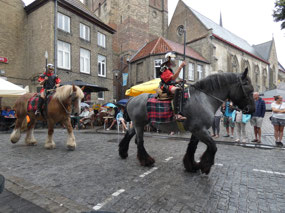
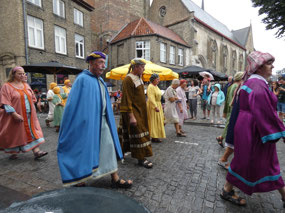
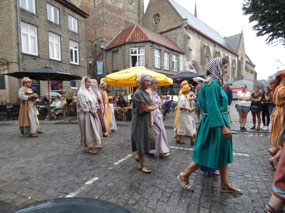
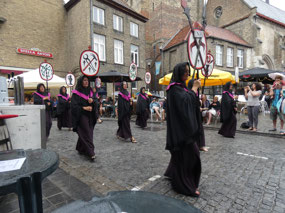
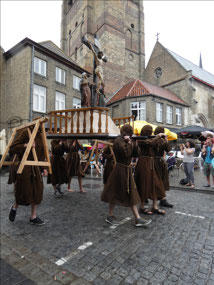
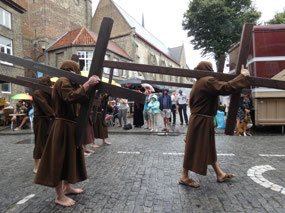
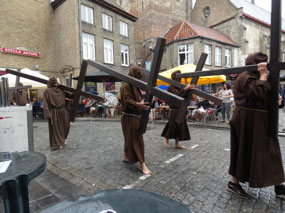
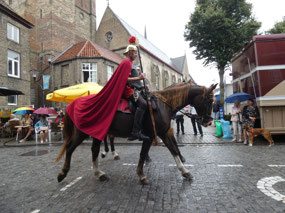
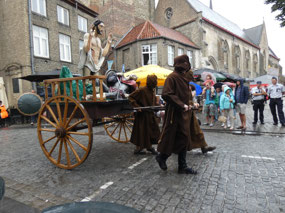
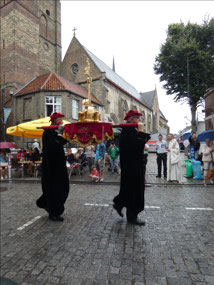
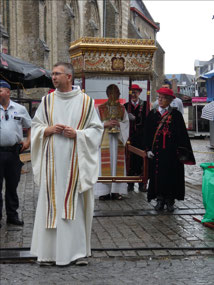
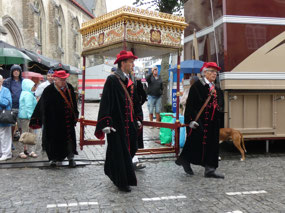
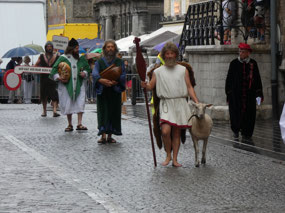
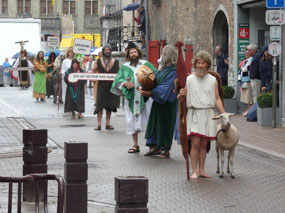
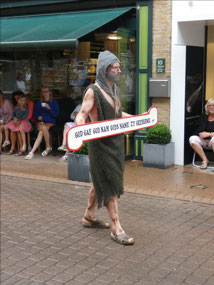
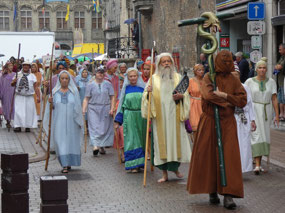
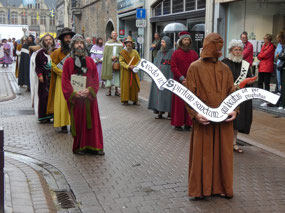
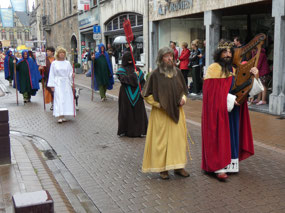
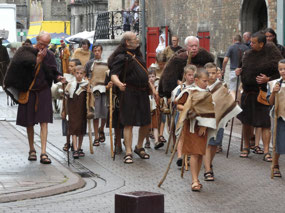
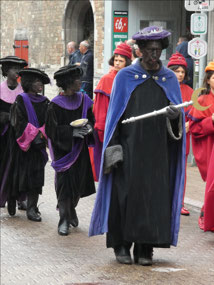
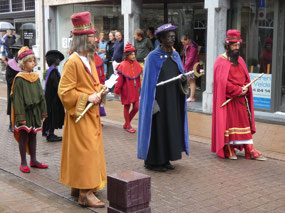
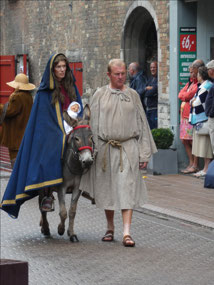
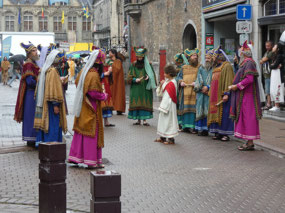
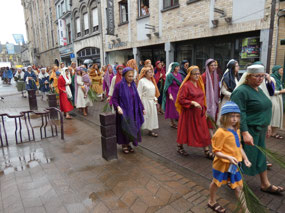

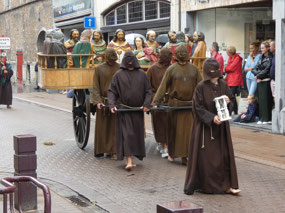
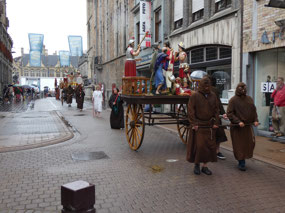
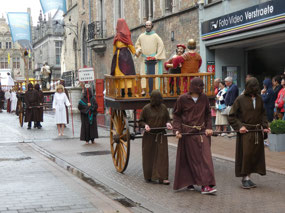
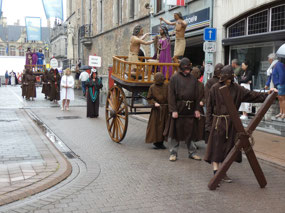
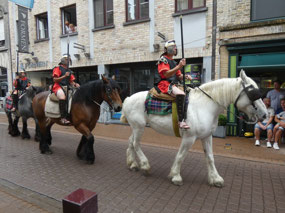
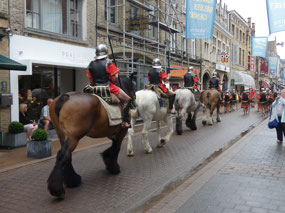
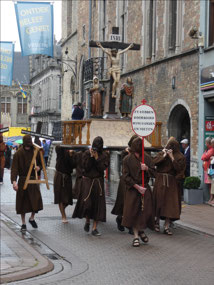
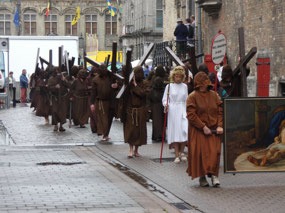
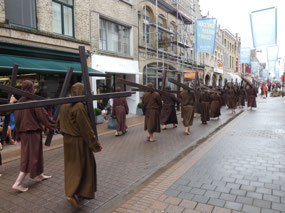
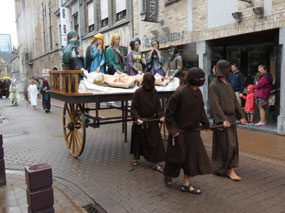
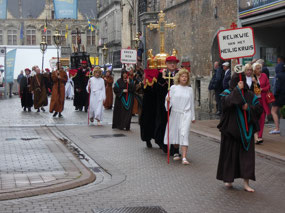
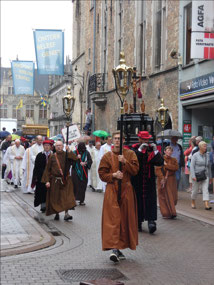
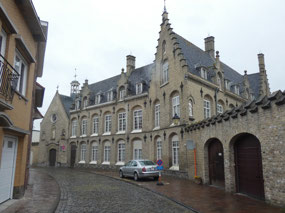
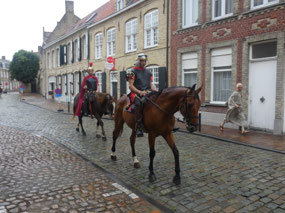
2025-05-22